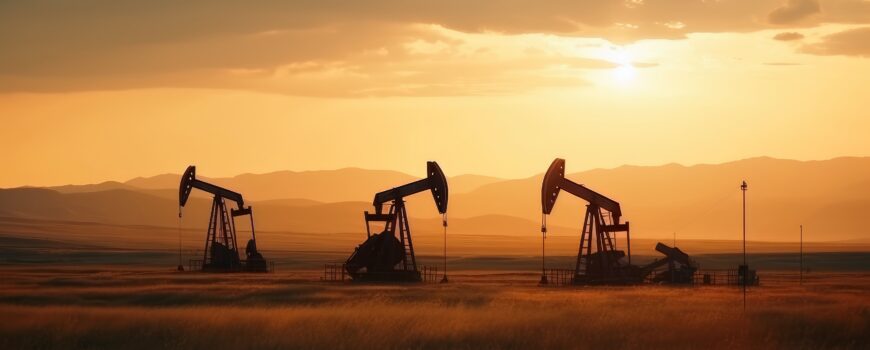When Will the Oil Run Out?
With all the talk about moving to cleaner energy and away from fossil fuels, are we doing enough and are we doing it fast enough or too fast.
Oil has been the lifeblood of the global economy for over a century, fueling industries, transportation, and providing a wide range of products. However, concerns about the finite nature of this non-renewable resource have fueled discussions about how long oil fields will continue to produce oil. This article aims to provide a comprehensive analysis of the factors affecting oil field longevity and explore potential timelines for oil depletion.
- Reserves and Production Rates
Understanding the relationship between proven oil reserves and production rates is crucial in estimating the lifespan of oil fields. Proven reserves refer to the oil volumes that can be extracted economically with existing technology. The production rate, on the other hand, represents the amount of oil extracted per unit of time. By assessing these factors, we can gauge how long oil fields will continue to produce at current rates.
- Global Oil Reserves
According to the BP Statistical Review of World Energy 2021, the world’s proven oil reserves amounted to approximately 1.7 trillion barrels at the end of 2020. This figure is subject to change as new reserves are discovered and extraction technologies improve. The estimation of oil reserves remains a complex task due to various factors, including geopolitical considerations, environmental restrictions, and economic viability.
- Production Decline Rates
Oil fields experience a decline in production rates as they mature. The decline rate is influenced by several factors, such as geological characteristics, extraction methods, and investment in enhanced oil recovery techniques. Although decline rates can vary significantly between oil fields, the industry average is around 5-7% per year. This decline is partly offset by new discoveries and technological advancements, but it highlights the challenge of sustaining production levels in the long term.
- Technological Advancements
Advancements in extraction techniques, such as hydraulic fracturing (fracking) and offshore drilling, have significantly extended the lifespan of many oil fields. These technologies enable the extraction of oil from previously inaccessible reserves, increasing the overall recoverable volume. However, technological advancements also have limitations, and there may be diminishing returns as operators reach the limits of what can be extracted economically.
- Exploration and Discoveries
Exploration activities play a critical role in replenishing oil reserves. While it is challenging to predict future discoveries accurately, ongoing exploration efforts continue to yield new finds. However, the pace of discoveries has been slowing down in recent years, indicating that the easy-to-find oil fields may have already been tapped. New discoveries are often located in more remote and challenging areas, which can pose logistical and environmental challenges for extraction.
- Governments Don’t Actually When the Oil Will Run out
The global shift towards renewable energy sources and the growing awareness of climate change have prompted discussions about the future demand for oil. As the world transitions to cleaner energy alternatives, the demand for oil is expected to decline. However, the pace and extent of this transition remain uncertain. The future of transportation, industrial processes, and petrochemical usage will play significant roles in determining oil demand and subsequently impacting the lifespan of oil fields. The simple fact is that know when will the oil run out.
- Environmental Concerns and Regulations
Increasing environmental concerns and stricter regulations have the potential to limit oil extraction activities. This can impact the viability and profitability of certain oil fields, particularly those in environmentally sensitive regions. The implementation of carbon pricing mechanisms, emission reduction targets, and international agreements, such as the Paris Agreement, can further shape the future of the oil industry.
- The Inconvenient Truth
While it is challenging to provide an exact timeline for the depletion of oil fields, the factors discussed above provide insights into the future of oil production. Technological advancements, ongoing exploration, and improved extraction techniques have extended the lifespan of oil fields. However, the decline in new discoveries, the energy transition towards cleaner alternatives, and environmental considerations make it a high priority that we move away from fossil fuels. And so, although we don’t know when the oil will run out, we must be well ahead of the event to prevent global panic and chaos.

